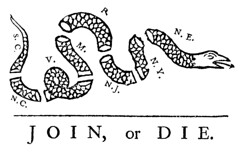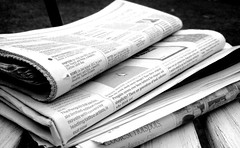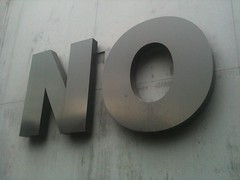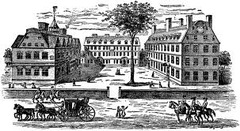| 8535016902 | Fort Sumter | Northern base located in Southern land; Where first shots were fired |  | 0 |
| 8535016903 | Border States | Slave states loyal to Union; Half of Southern manufacturing located here |  | 1 |
| 8535016904 | Southern Advantages of War | Defensive war; Excellent soldiers; Talented officers |  | 2 |
| 8535016905 | Southern Disadvantages of War | Poor transportation system; Few factories; Inflation |  | 3 |
| 8535016906 | Northern Advantages of War | 3/4 of nation's wealth; 3/4 of nation's RR; manpower; stable government; control of seas |  | 4 |
| 8535016907 | Northern Disadvantages of War | Offensive war; Lack of leaders |  | 5 |
| 8535016908 | European Aid | Europeans relied more on US wheat and corn than cotton |  | 6 |
| 8535016909 | Bull Run | Near Northern capital (DC); First major plan; Union retreated in a panic |  | 7 |
| 8535016910 | New Union Plan | Southern blockade; Liberate slaves; Seize Mississippi River; Fracture the confederacy; Capture Richmond; Engage the enemies main strength |  | 8 |
| 8535016911 | Antietam Creek | Bloody "Union" victory(more like draw); Victory keeps France and Britain out of war; Enables Lincoln to launch Emancipation Proclamation |  | 9 |
| 8535016912 | Emancipation Proclamation | Freed slaves in areas of rebellion; Strengthened moral cause in North |  | 10 |
| 8535016913 | Gettysburg | First battle in North; First eastern side North win |  | 11 |
| 8535016914 | Vicksburg (seals deal) | Another Union victory after Gettysburg; Reopened the Mississippi River; Killed South's hope for foreign intervention |  | 12 |
| 8535016915 | Sherman's March | Sherman destroyed everything in path to sea; Shortened war and weakened morale |  | 13 |
| 8535016916 | Andrew Johnson Presidency | Tennessee War Democrat; Freedmen's Bureau; Reconstruction plans; Black Codes; 13-15 amendments; Tries to veto everything; Almost impeached |  | 14 |
| 8535016917 | Freedmen's Bureau | Provides resources for freedmen and women; Johnson tried to veto but failed; Taught 200,000 blacks how to read |  | 15 |
| 8535016918 | 13th Amendment | Ends slavery |  | 16 |
| 8535016919 | 14th Amendment | Citizenship to freed slaves |  | 17 |
| 8535016920 | Civil Rights Bill | All persons born in US are citizens and cannot be deprived of that; Representation of states taken away if fail to follow; Confederates cannot hold federal office |  | 18 |
| 8535016921 | Johnson's "swing around the circle" | Johnson went from state to state for democratic support; More republicans then sent to Congress |  | 19 |
| 8535016922 | 15th Amendment | Black males can vote |  | 20 |
| 8535016923 | Reconstruction Act of 1867 | Created 5 military districts; Southern states must ratify 14th amendment; Black males can vote |  | 21 |
| 8535016924 | Impeachment of Johnson | Tenure of Office Act made to set up Johnson; House votes to impeach but falls 1 vote short |  | 22 |
| 8535016925 | Radical Reconstruction Success | Public school system, reformed tax system, property rights to women, more black political participation |  | 23 |
| 8535016926 | Radical Reconstruction falls short | North tired of "Southern Problems"; Republican governments set up in South, but 3 only actually happen |  | 24 |
| 8535016927 | Seward's Polly | Purchase of Alaska from Russia |  | 25 |
| 8535016928 | Manifest Destiny | The movement that citizens of the United States were destined to move west | | 26 |
| 8535016929 | Cotton | Depleted Soil; Half value of all American exports; One crop economy | | 27 |
| 8535016930 | Mountain Whites | Racist people that were anti-slavery | | 28 |
| 8535016931 | Nat Turner Rebellion | 60 whites and over 200 blacks were killed; Turner and 19 others were hung | | 29 |
| 8535016932 | Southern Response to Abolitionists | Tighter slave codes; Use Bible to support slavery; House says no debate on slavery; Burned propaganda | | 30 |
| 8535016933 | William Harrison Presidency | Whig; Died 4 weeks into term | | 31 |
| 8535016934 | John Tyler Presidency | Democrat in Whig Clothing (hated Jackson); Ends Independent Treasury, Vetoes Bank Bill; Approved Moderate Tariff; Maine disputed; Acquires Texas | | 32 |
| 8535016935 | Webster-Ashburton Treaty | Disputes land evenly between Unites and British of Maine and Minnesota | | 33 |
| 8535016936 | James Polk Presidency | Democrat; Wins on Manifest Destiny Platform; Mexican War | | 34 |
| 8535016937 | Polk's 4 Goals | Lower Tariff, Restore Independent Treasury, Settle Oregon Dispute, California | | 35 |
| 8535016938 | Mexican War | Polk proposed $25 million for California and eastern land, but Mexico refused; Bitter relations with Mexico; Slavery revisited | | 36 |
| 8535016939 | Treaty of Guadalupe-Hidalgo | US payed $18 million to Mexico for California, Texas, and all last east | | 37 |
| 8535016940 | Free Soil Party (Van Buren) | Abolitionists and Northern Democrats that supported Wilmot Proviso | | 38 |
| 8535016941 | Wilmot Proviso | No slavery in new territory | | 39 |
| 8535016942 | Zachary Taylor Presidency | Whig; Compromise of 1850; California Debate (dies during debate) | | 40 |
| 8535016943 | Compromise of 1850 | California is a free state; Mexican Cession left to popular sovereignty; No slave trade in DC; More strict slave laws; Disputed Texas territory given to New Mexico | | 41 |
| 8535016944 | Franklin Pierce Presidency | Democrat; Ostend Manifesto; Gadsden Purchase; Kansas-Nebraska Act | | 42 |
| 8535016945 | Ostend Manifesto | To get another slave state; America offers Spain $120 million for Cuba | | 43 |
| 8535016946 | Gadsden Purchase | Purchase of bottom part of Arizona and New Mexico for better railroading | | 44 |
| 8535016947 | Kansas-Nebraska Act | Stephen Douglas; Sliced Nebraska territory into 2; Slavery decided by popular sovereignty; Shattered Democratic Party; Formed Republican Party; Fugitive Slave Laws ignored in North | | 45 |
| 8535016948 | Lecompton Constitution | Kansas citizens would vote for or without slavery, but slavery was protected either way | | 46 |
| 8535016949 | Dred Scott Case | Dred Scott taken into non-slave state but then brought back into slavery | | 47 |
| 8535016950 | Election of 1824 | Jackson gets most electoral votes but not the needed majority; House voted Adams as president over Jackson | | 48 |
| 8535016951 | Corrupt Bargain | Clay gives support to Adams for Secretary of State job | | 49 |
| 8535016952 | John Quincy Adams Presidency | Gets nothing done because plagued by Corrupt Bargain and fragmented Democratic Republican party | | 50 |
| 8535016953 | Election of 1828 | Jackson defeats Adams in rematch | | 51 |
| 8535016954 | Andrew Jackson Presidency | Spoils System, Tariff of Abomination, Trail of Tears, Ended US Bank, Equality, No property qualifications for voting | | 52 |
| 8535016955 | Spoils System | Rewarding political supporters with government jobs | | 53 |
| 8535016956 | Tariff of Abomination | Tariff increase supported by south to hurt north | | 54 |
| 8535016957 | South Carolina Exposition | Written saying tariff was unconstitutional and states could nullify; South Carolina threatened to leave Union after compromise | | 55 |
| 8535016958 | Trail of Tears | The removal of Indians to the west; Jackson went against Supreme Court decision and forced removal | | 56 |
| 8535016959 | Bank War | Jackson vetoed recharter for US Bank because he thought it was harmful; Increased power of presidency | | 57 |
| 8535016960 | Election of 1836 | Introduction of Whig Party; Van Buren defeats Harrison | | 58 |
| 8535016961 | Texas | Americans settlers clashed with Mexico on slavery; Texas declared independence | | 59 |
| 8535016962 | Election of 1840 | Harrison defeats Van Buren | | 60 |
| 8535016963 | Nativist Movement | Know-nothing party wanted to restrict immigration | | 61 |
| 8535016964 | Factory System | Samuel Slater | | 62 |
| 8535016965 | Cotton Gin | Eli Whitney | | 63 |
| 8535016966 | Sewing Machine | Howe and Singer | | 64 |
| 8535016967 | Telegraph | Samuel Morse | | 65 |
| 8535016968 | Reaper | Cyrus McCormick | | 66 |
| 8535016969 | Steel Plow | John Deere | | 67 |
| 8535016970 | Cult of Domesticity | Glorified women's role in the home | | 68 |
| 8535016971 | Steamboat | Robert Fulton | | 69 |
| 8535016972 | Canals in New York | Dewitt Clinton | | 70 |
| 8535016973 | South Economy | Exports cotton to New England and England | | 71 |
| 8535016974 | West Economy | Exports grain and livestock to East and Europe | | 72 |
| 8535016975 | East Economy | Produces machines and textiles to South and West | | 73 |
| 8535016976 | Second Great Awakening | A religious revival movement that initiated social reforms | | 74 |
| 8535016977 | Burned Over District | Region that was so hot religiously and it burned everything; All were converted | | 75 |
| 8535016978 | Denounced slavery and alcohol | Charles Finney | | 76 |
| 8535016979 | Mormonism; West | Brigham Young | | 77 |
| 8535016980 | Education reformer; Supported longer terms and expanded curriculum | Horace Mann | | 78 |
| 8535016981 | Wrote first dictionary | Noah Webster | | 79 |
| 8535016982 | Mentally Ill | Dorothea Dix | | 80 |
| 8535016983 | Prohibition of booze | Neal Dow | | 81 |
| 8535016984 | Women's Rights | Stanton and Anthony | | 82 |
| 8535016985 | Seneca Falls Convention | Women organizing and discussing rights | | 83 |
| 8535016986 | Declaration of Sentiments | Modeled after Declaration of Independence for women's rights | | 84 |
| 8535016987 | Oneida Community | Utopian society; Silverware; Free love; Eugenics | | 85 |
| 8535016988 | Founder of the Oneida Community | John Humphrey Noyes | | 86 |
| 8535016989 | Shakers | Prohibited marriage and sexual relations; Furniture | | 87 |
| 8535016990 | One of first American Authors; Rip Van Winkle | Washington Irving | | 88 |
| 8535016991 | First American Novelist; Last of the Mohicans | James Fenimore Cooper | | 89 |
| 8535016992 | Transcendentalism | All knowledge comes to the mind through our senses; Against the government; Nature | | 90 |
| 8535016993 | Lecturer; Critic of Slavery | Ralph Waldo Emerson | | 91 |
| 8535016994 | Civil Disobedience; Condemned slavery and didn't play taxes | Henry David Thoreau | | 92 |
| 8535016995 | Poet; Leaves of Grass | Walt Whitman | | 93 |
| 8535016996 | Tariff | Tax | | 94 |
| 8535016997 | Excise Tax | Domestic/Sales Tax | | 95 |
| 8535016998 | Bill of Rights | Protects individual rights from federal government | | 96 |
| 8535016999 | Hamilton's Economic Policy | New government assumed state and national debt; Tariffs and Excise Tax; Bank of United States | | 97 |
| 8535017000 | Bank of United States | 1/5 owned by federal government; Strict vs Loose | | 98 |
| 8535017001 | Federalists | Pro British; Tariff; Powerful Central Gov; Loose; North; Hamilton, Adams, Jay | | 99 |
| 8535017002 | Democratic Republicans | Pro French, Support Free Speech; States Rights; Support the Democracy; Strict; South; Jefferson, Madison, Monroe | | 100 |
| 8535017003 | Whiskey Rebellion | Farmers, who relied on selling their distilled grain, rose in defiance of the excise tax. Militia scattered the "rebels". The incident confirmed the power of the national government. | | 101 |
| 8535017004 | Washington's Neutrality Proclamation | To stay Neutral with France | | 102 |
| 8535017005 | Jay's Treaty | British would evacuate forts and pay damage to US ships. No mention of Impressment (purpose of going, failed) | | 103 |
| 8535017006 | Washington's Farewell Address | Washington retiring as president. He was concerned that the parties would end up splitting up the nation. Political parties are divisive and to stay neutral in alliances. | | 104 |
| 8535017007 | XYZ Affair | US go to French and "X,Y,Z" demanded $250,000 bribe to speak to Talleyrand. | | 105 |
| 8535017008 | Convention of 1800 | Peace agreement that ends hostility with French and ends French alliance | | 106 |
| 8535017009 | Kentucky and Virginia Resolutions | Written by Jefferson and Madison in response to Alien and Sedition Acts; Federal regime had exceeded its constitutional powers; Nullification was rightful remedy | | 107 |
| 8535017010 | Alien Acts | Deportation of Dangerous Allies | | 108 |
| 8535017011 | Sedition Acts | Restriction of free speech and speaking against the president | | 109 |
| 8535017012 | Revolution of 1800 | Peaceful transfer of power | | 110 |
| 8535017013 | Election of 1800 | Tie between Jefferson and Burr. House (Federalists) vote on party winner | | 111 |
| 8535017014 | Jefferson's Change in Policies | Pardoned Sedition Act violators; Eliminated excise tax | | 112 |
| 8535017015 | Louisiana Purchase | Currently controlled by French and aren't being used by them. President buys land $15 million, 3 cents per acre | | 113 |
| 8535017016 | Marbury vs Madison | Federalists losing power of Congress and Presidency; Marbury sued Madison; Federalists add more judges to federal court; Established Judicial Review | | 114 |
| 8535017017 | Judicial Review | Power of Supreme Court to judge whether act violates Constitution | | 115 |
| 8535017018 | Embargo Act | President said we are not trading with anyone; Hurt the northern states | | 116 |
| 8535017019 | Non-Intercourse Act | No trade with Britain and France; Spurred New England Industry | | 117 |
| 8535017020 | Macon's Bill No. 2 | Whoever follows restrictions can trade with US; France agreed | | 118 |
| 8535017021 | War Hawks | Someone who wants war | | 119 |
| 8535017022 | War of 1812 | War with British; British invading | | 120 |
| 8535017023 | Hartford Convention | Financial assistance for lost trade; Congress must have 2/3 vote for embargo or to declare war; Contributed to death of federalist party | | 121 |
| 8535017024 | Treaty of Ghent | Armistice (to stop fighting) and return all territory | | 122 |
| 8535017025 | Battle of New Orleans | Andrew Jackson makes fame | | 123 |
| 8535017026 | American System | Strong bank; Protective Tariff; Network of roads and canals | | 124 |
| 8535017027 | Panic of 1819 | "Banks are evil and are taking money" | | 125 |
| 8535017028 | Missouri Compromise | Missouri slaves, Maine free; No slavery above Missouri | | 126 |
| 8535017029 | Monroe Doctrine | An attempt to forestall European intervention into Western Hemisphere; No additional colonization; Nonintervention of European powers; Self Defense Doctrine | | 127 |
| 8535017030 | McCulloch vs Maryland | Maryland wanted to tax US Bank branch in Maryland; Marshall confirmed existence of bank; Gives power to federalists and taxes away from DR | | 128 |
| 8535017031 | Virginia | Unemployment, not able to farm led to founding; Settlers not used to fending for themselves; Plenty of unused food; Tobacco major cash source; House of Burgesses; South | | 129 |
| 8535017032 | Maryland | Lord Baltimore wanted financial profits and a refuge for Catholics; Tobacco; South | | 130 |
| 8535017033 | New York | Established for quick profit on trade; Many immigrants; Most diverse; Autocratic Dutch colony; No religious tolerance; Fertile; Middle | | 131 |
| 8535017034 | Pennsylvania: | William Penn and Quakers founded to make profit and experiment with government; Liberal land policy and encouraged immigrants; Fair with Natives; Representative Assembly; Anti-war/slavery; No tax supported church; Middle | | 132 |
| 8535017035 | New England: | Puritans wanted to purify Catholic church, extreme Christians; Rocky soil; Little religious toleration; Family Stability; Crude government and regulations formed by Mayflower Compact | | 133 |
| 8535017036 | Colonial Similarities | English customs/language; Protestant (besides Maryland); Some ethnic and religious tolerance (Puritans least); Social mobility; Self government; Self taxation; Education System | | 134 |
| 8535017037 | Seven Years War (French and Indian War) | A war fought between England, Prussia vs France, Spain, Austria, Russia. It led to enormous land gains for Great Britain. |  | 135 |
| 8535017038 | Albany Conference | A conference to keep the Iroquois loyal to Britain and one of the first attempts at colonial unity. |  | 136 |
| 8535017039 | Treaty of Paris 1763 | French left Canada and Ohio River Valley. Colonial esteem bolstered and military experience gained. Spain received Trans-Mississippi Louisiana from French. Losers = Indians. French are kicked out. All due to French/Indian War |  | 137 |
| 8535017040 | Proclamation of 1763 | Stop colonization until Indian issue stopped. Formed by British |  | 138 |
| 8535017041 | Mercantilism | Money = Power |  | 139 |
| 8535017042 | Benefits of Mercantilism | Price Supports, Tobacco Monopoly, British Navy Protection |  | 140 |
| 8535017043 | Disadvantages of Mercantilism | British Middlemen, Stifled Economy, Money Shortages/No Banks |  | 141 |
| 8535017044 | Sugar Act | Not trading sugar with French. Restrictions on foreign buying |  | 142 |
| 8535017045 | Quartering Act | Feed and house British soldiers |  | 143 |
| 8535017046 | Stamp Act | Every action required a stamp (eventually removed) |  | 144 |
| 8535017047 | Stamp Act Congress | 27 delegates from 9 colonies. Non-importation agreement. Plan to BOYCOTT |  | 145 |
| 8535017048 | Declaratory Acts | Declared they could do whatever they want to US |  | 146 |
| 8535017049 | Townshend Act | Tax on Paper, Tea, Lead, Glass. Led to Boston Massacre |  | 147 |
| 8535017050 | Committees of Correspondence | Spread Spirit of Resistance through letters |  | 148 |
| 8535017051 | Sam Adams | Political Agitator and Organizer of Rebellion |  | 149 |
| 8535017052 | Boston Tea Party | Protesters threw tea into harbor in rebelliance against Townshend Act |  | 150 |
| 8535017053 | Intolerable Acts | Closed Boston Port and Restricted Town Meetings |  | 151 |
| 8535017054 | Quebec Act | French retained government and customs in Canada. Colonists upset because French is extended to Ohio River Valley |  | 152 |
| 8535017055 | First Continental Congress and the Association | Philadelphia; 12 colonies sent 55 men. Created the Association (complete boycott). No call for independence. Wrote Declaration of Rights |  | 153 |
| 8535017056 | British Disadvantages of War | Second-rate generals, poor system of transportation, needed to conquer America, distance from home |  | 154 |
| 8535017057 | British Advantages of War | Wealth and Naval Power, More people |  | 155 |
| 8535017058 | American Disadvantages of War | Badly Organized, Money Problems, Lack of Military Supplies and Manufactured Goods |  | 156 |
| 8535017059 | American Advantages of War | Outstanding leadership, Self-Sustaining Economy, Foreign Aid (France), Fighting a defensive war |  | 157 |
| 8535017060 | Second Continental Congress | Full 13 colonies. To raise money for defense. Hope mercy called. Selected George Washington to head Army. Strong conservative and no sentiment for independence. |  | 158 |
| 8535017061 | Olive Branch Petition | Professed loyalty to crown and begged for further hostilities. King said no. Led to war officially starting |  | 159 |
| 8535017062 | Thomas Paine and Common Sense | Called for Independence and Created Democratic Republic |  | 160 |
| 8535017063 | Declaration of Independence | To cut British tie. Included need for human rights, no misdeeds. Jefferson wrote and words inspired by John Locke. |  | 161 |
| 8535017064 | Battle of Saratoga | Colonists won and led to French Support |  | 162 |
| 8535017065 | Treaty of Alliance with France | Colonial War becomes World War. French joins USA in fight. |  | 163 |
| 8535017066 | Treaty of Paris 1783 | British eager for amends, British recognized Independence, Western Boundary Mississippi River |  | 164 |
| 8535017067 | Articles of Confederation | No executive. Weak congress / can't collect money. Judicial concerns left to states. Each state has one vote. Amendment has to be unanimous. Together but states mainly control themselves. |  | 165 |
| 8535017068 | Shay's Rebellion | Back country farmers revolting against foreclosures and taxes. Demanded lighter taxes and cheaper money. Led to stronger national government |  | 166 |
| 8535017069 | Mobocracy | Large groups wanting change | | 167 |
| 8535017070 | Constitution | Great Compromise. Bicameral Legislature. Senate. House. 3/5 Slave Compromise (Gives South more representation and power). Slave trade ends | | 168 |
| 8535017071 | Starving Time | Settlers were not used to fending for themselves; Plenty of unused food and wasted time looking for gold | | 169 |
| 8535017072 | Acts of Toleration | Passed in 1694 local assembly guaranteeing safety and allowance of Christians; Gives religious tolerance to Protestants and Catholics | | 170 |
| 8535017073 | House of Burgesses | Miniature Parliament; First Government; Representative Democracy | | 171 |
| 8535017074 | Predestination | a belief that the moment of creation if one is going to heaven or hell | | 172 |
| 8535017075 | Conversion | a sign that you are/are not saved | | 173 |
| 8535017076 | Mayflower Compact | A document that agreed to form a crude government and set of regulations in Massachusetts Bay Colony; It led to Constitutions | | 174 |
| 8535017077 | Fundamental Orders | Democratic Constitution | | 175 |
| 8535017078 | New England Confederation | The banding of 4 colonies to defend against foes and deal with intercolonial problems; Exclusive Puritan club | | 176 |
| 8535017079 | Navigation Laws | Laws that were unpopular used to suppress smuggling; To try to force colonies to trade within empire | | 177 |
| 8535017080 | Bacon's Rebellion | Bacon attacked Indians, chased governor from Jamestown, and set town to fire; Indentured Servants given poor land to farm; Led to other slaves | | 178 |
| 8535017081 | Middle Passage | Slave passage from Africa to West Indies | | 179 |
| 8535017082 | Molasses Act | Says colonies can't trade molasses with West Indies | | 180 |
| 8535017083 | Great Awakening | Religious Revival; People started again believing that good works led to salvation; Back to conservative and religion | | 181 |
| 8535017084 | Southwest | Complexed Trading; Corn, Beans, Squash; Irrigation; Gatherers; Vegetables; Dependent on dry agriculture, rainfall; Pueblos; Lived close to one another; Stone; Brick, Dried Clay; Canals; Pottery; Dogs; Anasazi, Hohokam | | 182 |
| 8535017085 | Mississippi Valley | Very trade based; Maize, bean cultivation for high population; Hunters, Gatherers, Farmers; Didn't need irrigation; Thatch Covered Houses; Mounds, Daub Houses; Near water and streams; Muskogean Language; Large Walls and watch towers; Disappeared; Lots of temples and mounds; Cahokia | | 183 |
| 8535017086 | Pacific Coast | Hunted sea mammals; Berries; NOT farmers; Wide variety of food; Dams, Reservoirs; Coastal villages; Long houses- wood, bark; boat builders; tools; baskets; totem poles; higher archery | | 184 |
| 8535017087 | Eastern Woodland | Horticulture, Hunter, Gatherer; Corn, Beans, Squash; Lots of resources; long houses; 5 or more tribes combined; gender roles; Iroquois Confederacy | | 185 |
| 8535017088 | Plains | Heavily hunted large animals (bison); Not farmers; Extensive crop trade; Nomadic; Tee Pees; Sioux | | 186 |
| 8535017089 | Aztec | Trade; Farming; Bartery; Adobe, sun dried clay; Surpluss Food; Human Sacrifices; Big Groups; Sewer Systems; Huge temples; 15 million | | 187 |
| 8535017090 | Encomienda System | A system used by the Spanish Government to regulate Native Americans and reward Spanish colonists. It legalized forced slave labor and asked the colonist to convert natives to Christianity. | | 188 |
| 8535017091 | Aztec Collapse | Too many enemies; Not as advanced weapons; Smallpox; Supplies cut off | | 189 |
| 8535017092 | Black Legend | False concept that Spanish tortured and butchered Native Americans, stole their gold, purposely gave them Smallpox; Believed by De Aza | | 190 |
| 8535017093 | Mestizo | Mexican people of mixed descent; Formed unique culture | | 191 |
| 8535017094 | Capitalism | For mother country to make a lot of $ | | 192 |
| 8535017095 | Mercantilism (wealth equals power) | In a system in which a country attempts to amass wealth through trade with other countries, exporting more than it imports and increasing stores of gold and precious metal; Buying more than selling | | 193 |
| 8535017096 | Iroquois Confederacy | Force against Europeans in NY | | 194 |





































































































































































































